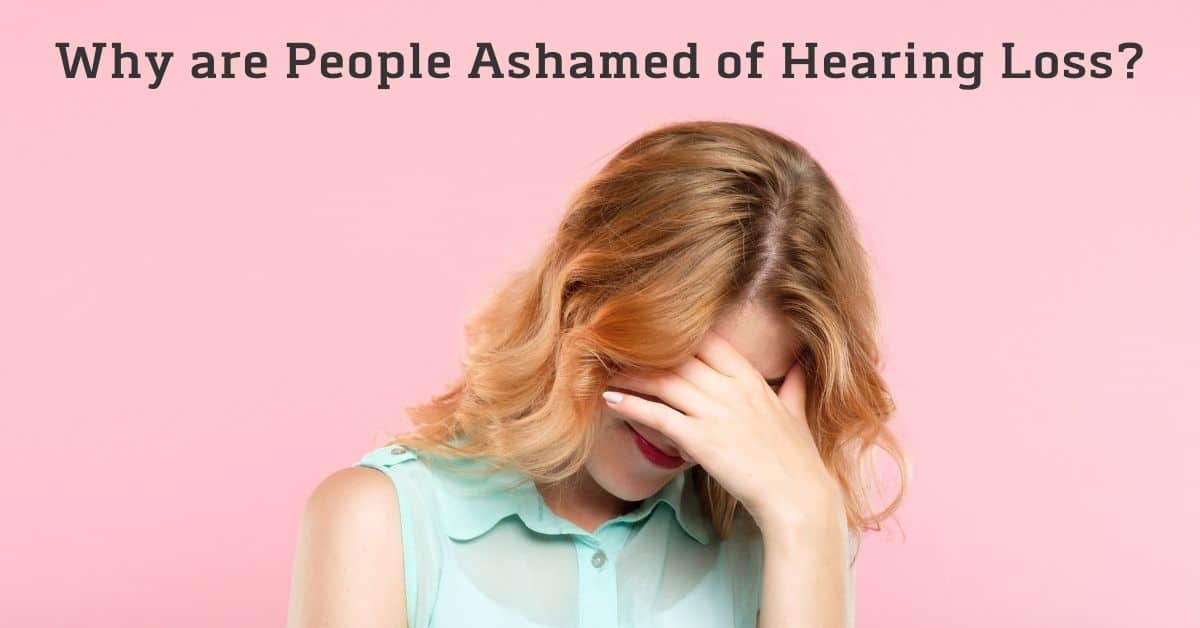
It can be difficult to admit that you’re struggling to hear. After all, you don’t want your friends and family to think of you differently, or treat you differently than before. You may be worried that having hearing loss will make you seem old, and you feel ashamed of your hearing loss. Hearing loss shouldn’t be more embarrassing than changes to your vision, or changes to your mobility, so why is hearing loss seen as such a big deal?
Social Stigma
One of the main reasons people are ashamed to talk about their hearing loss is because of social stigma. Many people with hearing loss are worried that their loved ones will view them as being old, or over the hill. Hearing loss is often seen as something that only affects seniors, and many Americans are scared to admit to their hearing loss for fear of seeming old.
When you struggle to hear, or ask people to repeat themselves, you’re also worried that people will think you’re less intelligent, or didn’t understand the meaning of what they said rather than not hearing the words themselves. Unlike a physical disability, hearing loss is invisible, and it’s hard to notice right away if someone is struggling to hear. If you mishear a question and answer inappropriately, most people won’t realize that you didn’t hear the question correctly. Sometimes you may even appear unfriendly or rude. For example, in the grocery store someone may say hello behind you, or ask to pass you. If you didn’t hear them, they may think you were being rude, or purposely ignoring them.
The Facts About Hearing Loss
If you have hearing loss, you’re not alone. Hearing loss is very common, and approximately 40 million Americans struggle to hear. This includes children, teenagers, adults, and seniors. Hearing loss can be caused by aging, as the cells in your ear experience a lot of wear and tear over the years. Hearing loss can also be the result of noise, and noise induced hearing loss from exposure to dangerous sounds in our environment account for the rise in rates of hearing loss among younger people.
A recent study from the University of Wisconsin School of Medicine and Public Health found that rates of hearing loss were high in many different age groups. 6% of adults between 35 – 44, 11% of adults between 45 – 54, and 25% of adults 55 to 64 suffer from hearing loss. Half of all returning veterans have also experienced hearing loss, and struggle to hear.
Despite these facts, many people wait between 7 and 10 years to seek treatment for their hearing loss. During that time their relationships suffer, and they miss out on endless conversations, intimate moments, social events, and joy. Is the embarrassment worth it?
Treating Hearing Loss
Many Americans avoid talking about their hearing loss, and only 1 in 3 people who need treatment ever seek out a hearing health specialist. They don’t tell family, friends or coworkers that they can’t hear, and live with all the consequences of untreated hearing loss.
Treating hearing loss has a lot of benefits. When you wear hearing aids, your relationships will improve, since you won’t have to ask your loved ones to repeat themselves, and you’ll hear every conversation clearly. Hearing aids keep you more active, and you’ll be confident when meeting friends for dinner at the new restaurant across town. Those with hearing aids have improved cognitive function, and have lower rates of stress, anxiety, depression, and even dementia.
My Hearing Centers
Are you ready to talk about your hearing loss? Straining to hear is nothing to be ashamed about, and we are here to support you in all your hearing needs. If you have hearing loss, or even think you might be struggling to hear, don’t be ashamed about it, but call us today!
The initial hearing test will shed light on your level of hearing loss and unique hearing needs, and we’ll help you pick the perfect hearing aid. From sleek behind the ear devices to nearly invisible devices that sit within your ear canal, the only thing people will notice is how well you can hear. We’ll be with you every step of the way, so visit us to start talking about hearing loss.
